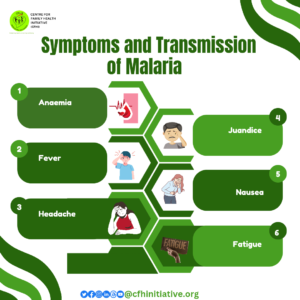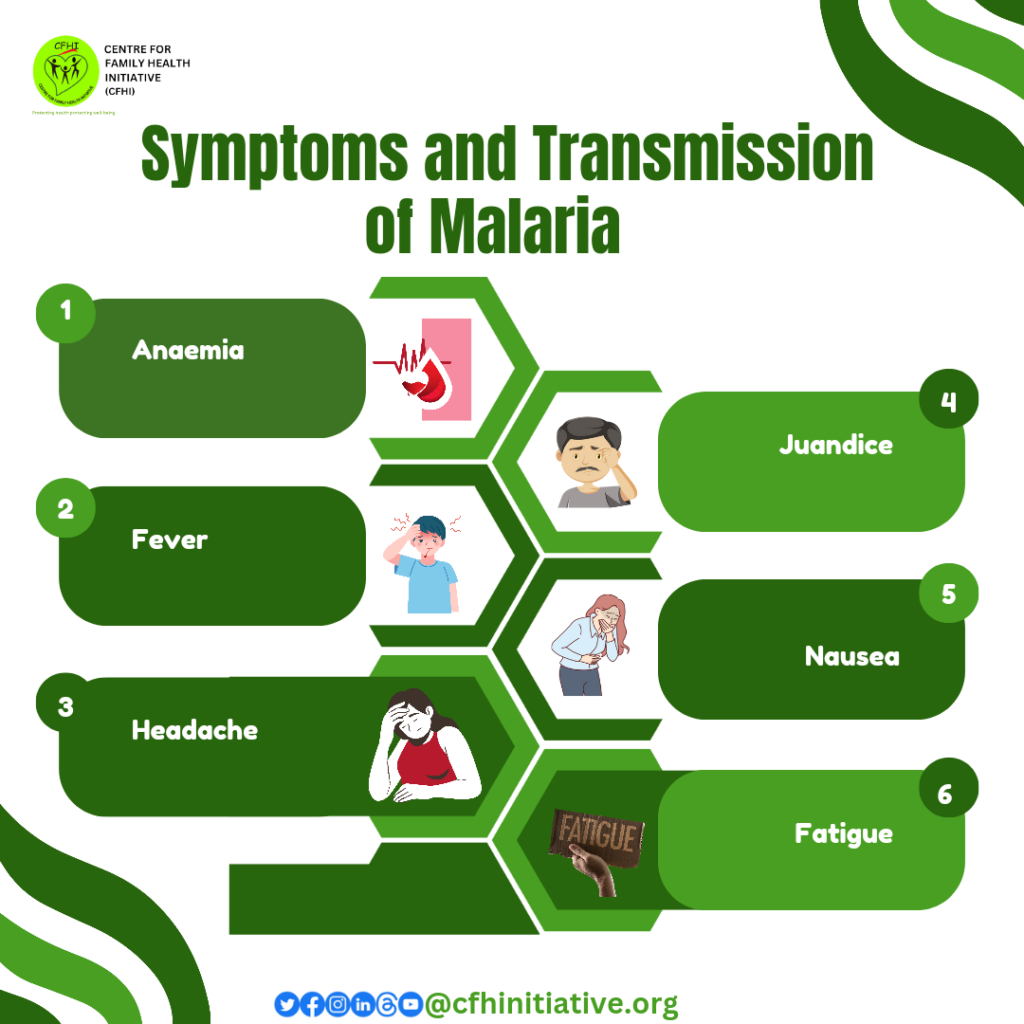Malaria remains a significant global health challenge, particularly in tropical and subtropical regions. According to recent data, an estimated 249 million cases of malaria were documented globally in 2022, with 608 000 malaria deaths reported across 85 countries. 1
Symptoms of Malaria:
Fever: One of the hallmark symptoms of malaria is a high fever, often accompanied by chills and sweating. The fever may come and go in cycles, depending on the type of Plasmodium parasite causing the infection.
Headaches and Body Aches: Malaria infection typically causes severe headaches and body aches, which can be debilitating.
Nausea and Vomiting: Many individuals with malaria experience nausea, vomiting, and sometimes diarrhea.
Fatigue: Malaria can cause extreme fatigue and weakness, making it difficult to carry out daily activities.
Jaundice: In severe cases, malaria can lead to jaundice, characterized by yellowing of the skin and eyes due to liver dysfunction.
Anemia: The destruction of red blood cells by the Plasmodium parasite can lead to anemia, resulting in weakness, pale skin, and shortness of breath.
Other Symptoms: Some individuals may experience symptoms such as cough, chest pain, and confusion, particularly in severe cases of malaria.
Transmission of Malaria:
Malaria is primarily spread by female Anopheles mosquitoes. It occurs when a mosquito carrying the disease from biting an infected individual then bites another person. Once inside the bloodstream, the parasites travel to the liver, where they mature before invading red blood cells.2
Over the years, CFHI has demonstrated a steadfast commitment to reducing malaria prevalence within various communities. Engaging with over 1000 individuals, our endeavors entail comprehensive education programs emphasizing the importance of environmental hygiene and the adoption of effective malaria prevention and treatment measures. Moreover, we have supplied indispensable resources like mosquito coils and mosquito nets, alongside executing large-scale community sanitation and fumigation campaigns. In observance of World Malaria Day in 2019, CFHI conducted educational sessions for over 127 residents with disabilities in the Karamajiji community of Abuja, focusing on malaria prevention and the crucial role of maintaining a hygienic environment. Additionally, we provided mosquito coils to 98 participants and organized a community-wide sanitation initiative, including fumigation efforts, to further bolster malaria prevention measures within the community.
Recognizing the symptoms and how malaria spreads is vital for prevention and treatment. Through increased awareness and the implementation of thorough control measures, we can strive to alleviate the burden of this fatal disease and enhance the health and welfare of affected communities worldwide.
https://www.who.int/news-room/fact-sheets/detail/malaria


